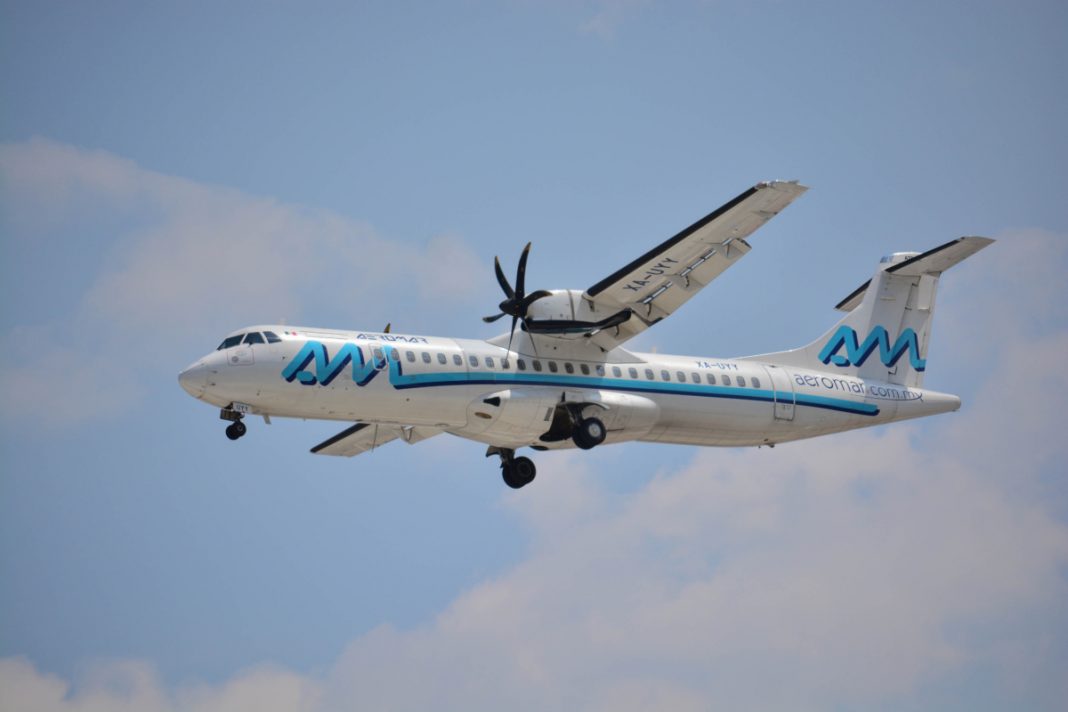Two Mexican carriers, Interjet and Aeromar, launched today a new codeshare agreement that will allow them to commercialize routes together. According to the airlines, this is the first step of a deeper partnership. What does this mean for the Mexican air industry and the future of both companies? Let’s investigate further.

How does the alliance work?
The codeshare agreement starts today, said both companies in a joint statement seen by Simple Flying.
Interjet will participate in the sale of seven Aeromar routes coming out of Mexico City. The destinations are the cities of Acapulco, Oaxaca, Puerto Escondido, San Luis Potosí, Veracruz, Zihuatanejo and Guadalajara-Puerto Vallarta.
Meanwhile, Aeromar will also sell seven Interjet routes from Mexico City: Chetumal, Guadalajara, Mérida, Monterrey, Puerto Vallarta, Tijuana, and Villahermosa.
The carriers added,
“We hope that in the short term, we can extend the range of the agreement. We want to cover all the routes of both airlines.”
It is important to note that this is the first codeshare agreement between domestic airlines in Mexico. Both carriers have a different approach to the travel industry as Interjet is a low-cost carrier, and Aeromar is more of a business and leisure airline.
The alliance may help the carriers fly through the pandemic, although it is unlikely to make them have a more significant role in the Mexican industry. Let’s see how both airlines are currently doing.

What’s going on with Interjet?
We’ve covered the arrays of Interjet extensively. The carrier has lost more than 90% of its Airbus fleet in the last few months. The leasing companies have repossessed these airplanes and given them new registrations. As of 5 August, 25 former Interjet Airbuses no longer have a Mexican registration, meaning they won’t return to the Mexican low-cost.
Since April, Interjet stopped flying internationally, as the coronavirus pandemic grew stronger in Latin America. Currently, Interjet has ten domestic destinations, and it is operating them with a fleet of five Sukhoi planes.
While we can’t say that the carrier will survive the crisis, it is taking baby steps towards recovery. In August it grew its capacity by 88% in comparison with July. For example, Interjet now flies three times a day between Mexico City and Cancun, the country’s hottest destination.
Interjet also recently received a new investment worth US$150 million. It also changed its top management. Although the carrier has not officially stated it, the former CEO William Shaw is no longer in the company. Instead, according to local sources, a man by the name of Carlos Rello Lara is in front of Interjet.
One thing is for sure: Interjet will be a shell of what it used to be. It will take years before it can grow back to its 2019 level. Other Mexican carriers like Volaris, Viva Aerobus, and Aeromexico will take the slots, the routes, and the flying public.

Who’s Aeromar? – The only ATR operator in Mexico
In 2019, Aeromar was the fifth most important airline in Mexico. Nevertheless, compared with the top-four, Aeromar is a small regional player that didn’t surpass a million passengers during the year.
The carrier has been around since 1987. It currently has a fleet of ten ATR aircraft, and it is the only operator of this model in Mexico. Aeromar has three ATR-72 with a capacity for 48 passengers and seven ATR-72-600 with capacity for 68 passengers. For avgeeks out there, this alliance should be fun as it joins a Russian fleet with an Italian fleet in Mexico.
In 2020, Aeromar has transported a little over 186 thousand passengers, a 50.4% decrease in comparison with last year. It has 0.7% of the Mexican market share. Meanwhile, Interjet has a 13.2% market share, according to government sources.
Aeromar’s model is to connect smaller cities with Mexico City. Before the pandemic, the carrier presented a milk route across several towns in the south of Mexico. Nevertheless, those plans are shelved due to the crisis.
What do you think of this alliance? Let us know in the comments.
[ad_2]
Source link


